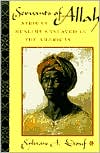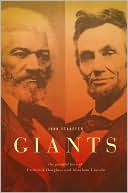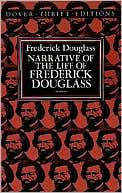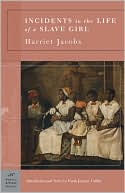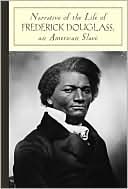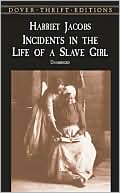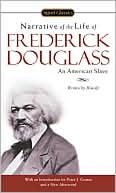Servants of Allah: African Muslims Enslaved in the Americas
Despite the explosion in work on African American and religious history, little is known about Black Muslims who came to America as slaves. Most assume that what Muslim faith any Africans did bring with them was quickly absorbed into the new Christian milieu. But, surprisingly, as Sylviane Diouf shows in this new, meticulously researched volume, Islam flourished during slavery on a large scale.\ Servants of Allah presents a history of African Muslim slaves, following them from Africa to the...
Search in google:
"Servants of Allah opens a new door on the African Diaspora and provides readers with even more insight into Islam, as well as enslaved Africans. Diouf's study greatly enhances current literature on the Diaspora."--Jason Zappe, Copley News Service Dec '98"This historical study is ground-breaking not only in its theme but also its approach, which can be described as pan-Africanist to the extent that it relates the histories of these deported Muslims to the political upheavals of medieval Africa...; forges links between the varied sites of their dispersal from the 16th to the 19th century...; and examines the issue of return to Africa and the lineage (or the absence thereof) of this first American Islam."--Sylvie Kandé, QBR Jan/Feb '99"Servants of Allah is constructed in a highly classical manner: the sobriety of its analysis lets the facts speak for themselves, with a minimum of editorializing; it is structured logically and symmetrically in a manner that illuminates the nodal point of the Muslim's distinctiveness within the slave system, namely, their mastery of writing....Servants of Allah has a wealth of arguments that provoke reflection and that will not leave the reader indifferent or lacking in references for further reading." -- Quarterly Black Review"Sylviane A. Diouf's book makes a major contribution by focusing on Muslim participation in the slave trade and Muslims' impacts on the Americas. (...) Diouf presents a convincing and original picture of the life of enslaved Muslims, who, she claims, remained primarily servants of Allah than subjects of Christian masters. (...) The chapter on resistance and revolts isespecially interesting. According to the author, Muslims, as a result of their literacy and military skills, played essential roles in the Haitian Revolution and the early-nineteenth-century revolts in Bahia.Diouf's well-written and interesting book opens new avenues of inquiry and research. It will interest and perhaps inspire students of the African diaspora and slavery in the Americas."--Journal of American History"Sylviane Diouf's Servants of Allah is a welcome contribution to our understanding of a critical moment in the African Diaspora. Her focus is the collective experience of African Muslims enslaved in the New World. Diouf's premise is that Muslims maintained their religious and cultural integrity, indeed their identity, in the face of daunting odds. (...)The author's insight into Islamic almsgiving in the form of saraka cakes in the Georgia Sea islands is intriguing. The section on Muslim dress in the third chapter is well presented. Perhaps the most fascinating parts of the work concern the probability that Muslim holy books were transferred from the Old World to the New via networks of black sailors and that the blues are most likely informed by the musical creativity of West African Muslims".--Journal of Southern History Despite the explosion in work on African American and religious history, little is known about Black Muslims who came to America as slaves. Most assume that what Muslim faith any Africans did bring with them was quickly absorbed into the new Christian milieu. But, surprisingly, as Sylviane Diouf shows in this new, meticulously researched volume, Islam flourished during slavery on a large scale.Servants of Allah presents a history of African Muslim slaves, following them from Africa to the Americas. It details how, even while enslaved many Black Muslims managed to follow most of the precepts of their religion. Literate, urban, and well traveled, Black Muslims drew on their organization and the strength of their beliefs to play a major part in the most well known slave uprisings. Though Islam did not survive in the Americas in its orthodox form, its mark can be found in certain religions, traditions, and artistic creations of people of African descent.But for all their accomplishments and contributions to the cultures of the African Diaspora, the Muslim slaves have been largely ignored. Servants of Allah is the first book to examine the role of Islam in the lives of both individual practitioners and in the American slave community as a whole, while also shedding light on the legacy of Islam in today's American and Caribbean cultures. Choice Outstanding Academic Title of 1999.American Historical ReviewSylviane A. Diouf has written a sophisticated and important book on the history of West African Muslims in the New World. The author's cogent analyses of source materials from Old World-West African Islam and New World-transatlantic slave communities establishes a strong and persuasive case for rich and extensive Islamic influences in black religious and cultural traditions in Brazil, the United States, and the Caribbean islands. This creative and refreshing interpretation of West African-Islamic spiritual continuities in the African Diaspora is fascinating and very readable. The author's major contribution lies in her great insight into the worldview and the ethos of the African Muslim slaves in the Americas.
AcknowledgmentsIntroduction: An Understudied Presence and Legacy11African Muslims, Christian Europeans, and the Atlantic Slave Trade42Upholding the Five Pillars of Islam in a Hostile World493The Muslim Community714Literacy: A Distinction and a Danger1075Resistance, Revolts, and Returns to Africa1456The Muslim Legacy179Notes211Select Bibliography235Index247About the Author254
\ From Barnes & NobleServants of Allah does not subscribe to current theoretical fashions. Servants of Allah seeks to debunk the stereotypical image of the enslaved African in the Americas. Many, especially those who were Muslims at the time of capture, were learned and able to read. Because this imagery was contrary to the required projection of the African, Ms. Diouf indicates, the slaveholding establishment tried to regard African Muslims as Orientals, Arabs, or Moors, by virtue of a well-known tautology: Since the African was by definition barbaric, an educated slave could not be African. Through writing, certain Muslims protested against the enslavement of their friends and families; thanks to the written word, some of them returned to Africa.\ \ \ \ \ Sylvie KandeServants of Allah is constructed in a highly classical manner: the sobriety of its analysis lets the facts speak for themselves, with a minimum of editorializing; it is structured logically and symmetrically in a manner that illuminates the nodal point of the Muslim's distinctiveness within the slave system, namely, their mastery of writing....Servants of Allah has a wealth of arguments that provoke reflection and that will not leave the reader indifferent or lacking in references for further reading. \ — Quarterly Black Review\ \ \ American Historical ReviewSylviane A. Diouf has written a sophisticated and important book on the history of West African Muslims in the New World. The author's cogent analyses of source materials from Old World-West African Islam and New World-transatlantic slave communities establishes a strong and persuasive case for rich and extensive Islamic influences in black religious and cultural traditions in Brazil, the United States, and the Caribbean islands. This creative and refreshing interpretation of West African-Islamic spiritual continuities in the African Diaspora is fascinating and very readable. The author's major contribution lies in her great insight into the worldview and the ethos of the African Muslim slaves in the Americas.\ \ \ \ \ BooknewsExplores the stories of African Muslim slaves in the New World. The author argues that although Islam as brought by the Africans did not outlive the last slaves, "what they wrote on the sands of the plantations is a successful story of strength, resilience, courage, pride, and dignity." She discusses Christian Europeans, African Muslims, the Atlantic slave trade, literacy, revolts, and the Muslim legacy. Annotation c. by Book News, Inc., Portland, Or.\ \ \ \ \ Slavery and AbolitionDiouf's book provokes. Diouf does not merely investigate an antebellum community of Muslims who are 'forced' into captivity; she examines the relationships that existed between individual scholars, clerics and adherents to the message of the Qur'an. Diouf details an extensive range of literal, social, political and religious activity, designed to heal, connect, liberate, empower, create and celebrate, leading ultimately to manifestations of freedom. Servants of Allah is an important and useful text because it contains an impressive catalog of vital descriptions of life in captivity and the struggle for freedom.\ \ \ \ \ Journal of the American Academy of ReligionServants of Allah has six fact-filled chapters. Diouf deftly covers a regional history of West Africa during the period of the slave trade. She provides us with a contextual setting for all the participants in the trade and asserts the complexities of an already existing slave trade and its difference from what becomes American chattel slavery. She then proceeds to upset further our notions of who slaves were with the phrase "literate, urban, and in some cases well-traveled." Chapter 3 furnishes us with a relatively detailed account of Muslim slave life [in the Americas.] A solid discussion on the importance of names and identity in Islam and the responsibility to maintain that identity in the reality of Christian renaming is one hallmark of this section. This first broad and yet thorough revisiting of a significant and long denied history is absolutely critical for everyone to read.\ \ \ \ \ William and Mary QuarterlyServants of Allah is a thorough and ambitious attempt to reconstruct the ways the bonds of belief in orthodox Islam assisted hundreds of thousands of enslaved Africans to retain their cultural integrity as they were forced to live out their lives in bondage in the Americas. Meticulously constructing her narrative out of hundreds of references to Islamic practices and artifacts from a large variety of sources in several languages, Sylviane A. Diouf assembles solid evidence of the importance of Muslims as a distinct population within slave communities in Brazil, the Caribbean and North America.\ \ \ \ \ Journal of American HistorySylviane A. Diouf's book makes a major contribution by focusing on Muslim participation in the slave trade and Muslims' impacts on the Americas. (...) Diouf presents a convincing and original picture of the life of enslaved Muslims, who, she claims, remained primarily servants of Allah than subjects of Christian masters. (...) The chapter on resistance and revolts is especially interesting. According to the author, Muslims, as a result of their literacy and military skills, played essential roles in the Haitian Revolution and the early-nineteenth-century revolts in Bahia.\ Diouf's well-written and interesting book opens new avenues of inquiry and research. It will interest and perhaps inspire students of the African diaspora and slavery in the Americas.\ \ \ \ \ \ Journal of Southern HistorySylviane Diouf's Servants of Allah is a welcome contribution to our understanding of a critical moment in the African Diaspora. Her focus is the collective experience of African Muslims enslaved in the New World. Diouf's premise is that Muslims maintained their religious and cultural integrity, indeed their identity, in the face of daunting odds. (...)\ The author's insight into Islamic almsgiving in the form of saraka cakes in the Georgia Sea islands is intriguing. The section on Muslim dress in the third chapter is well presented. Perhaps the most fascinating parts of the work concern the probability that Muslim holy books were transferred from the Old World to the New via networks of black sailors and that the blues are most likely informed by the musical creativity of West African Muslims.\ \ \
